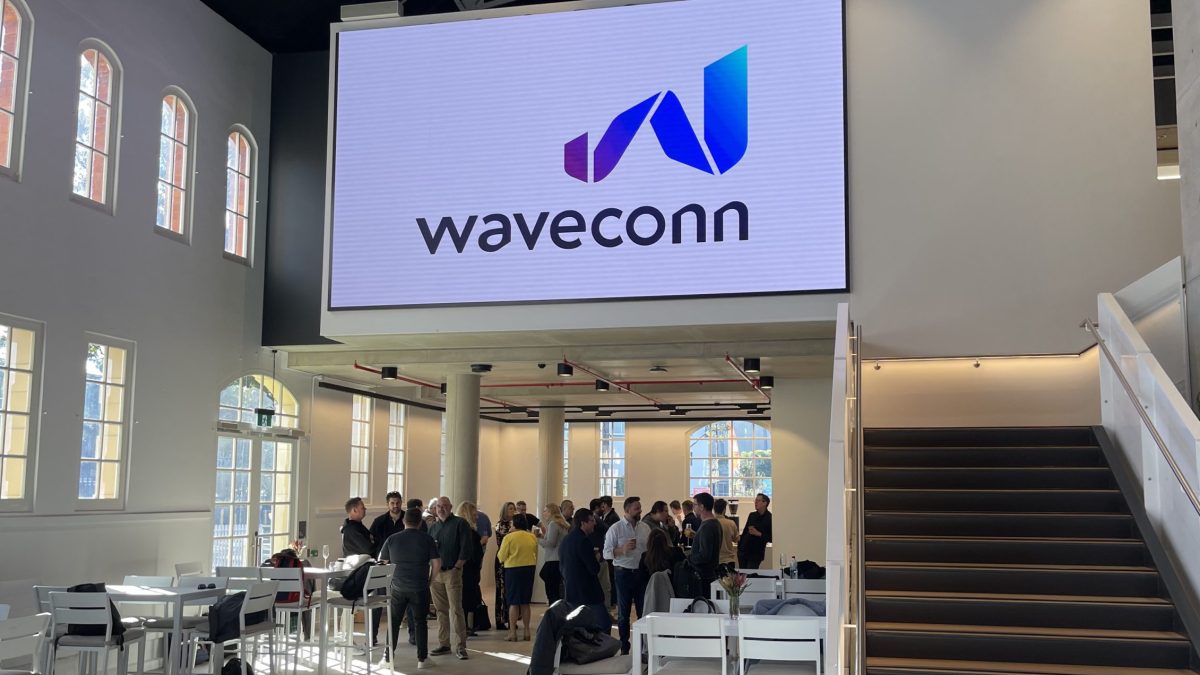When Josh Maxwell, Director WHS, Risk and Security at Waveconn first signed up for workplace mental health coaching, his fast-paced organisation was arguably already on ‘the right track’.
They’d recently completed the NSW Government’s Workplace Mental Health Training delivered by Black Dog Institute, had ISO 45003 Certification in place, and enjoy a workplace culture that Waveconn Planning Manager Chris Hayes describes as ‘family’.
‘We’ve got that culture that most companies have to work hard to get,’ Senior Project Manager Rick Huggins says.
However, like so many small businesses, they were grappling with a fast-paced environment, a passionate and dedicated workforce with growing workloads, and a period of enormous change and disruption for their once-micro organisation.
‘We’ve gone from being a small organisation, to a very competitive organisation in a significant world,’ Maxwell says of the telecommunications infrastructure business.
‘That transition from being a smaller company to a larger medium-sized company with a huge portfolio is something that needs to be managed.’
‘We are very small, but we do a hell of a lot of work,’ Hayes says. ‘People’s workload never stops, and it keeps getting bigger and bigger.’
Hayes acknowledges that one of the biggest challenges is managing this shift when you have a dedicated, passionate workforce.
‘There’s a lot to do, but we love doing it. And I don’t think many people have stopped and thought about what that means from a mental health point of view.’
With SuperFriend research showing 69.8 per cent of workers reported an inappropriate workload in 2022, the issue of managing growing workloads is not uncommon.
The Benefits of Coaching
For Maxwell, workplace mental health coaching provided the much-needed time to work ‘on’ the business, rather than getting swept along ‘in’ the business.
‘One of things [our coach] Rachael helped us with was our risk assessment process, and developing a psychosocial risk register as a standalone document,’ he says.
‘We now make that a standing agenda item for our health and safety leadership committee, so it gets its own airtime. It means we look at psychosocial risk on a regular basis, we review those risks, and make sure that our strategy about mitigating that risk is right for our organisation.’
Coaching, Maxwell suggests, also provided him with the tools he needed to get executive and board level support for business changes that support the mental health of staff.
‘Getting those tools to be able to sell it up the chain and illustrate why it’s important, that’s massive for any small business.’
Culture is Key
Maxwell stresses that it’s as much about creating a culture of care as it is creating change up the chain.
‘It’s just making sure that what we do is right for our people,’ Maxwell says.
‘To maintain or improve our culture we have to maintain that right balance. If you have a positive culture, you’re going to get really positive business outcomes. If you have a negative culture, you might as well not be in business.’
‘We’re blessed at Waveconn’ Hayes says. ‘We’re lucky that even though we’re 50-odd people we’re all so close knit. So when something like mental health comes up, it’s almost easy for us because we all talk.’
If you ask workplace mental health coach Rachael Palmer, luck has nothing to do with it. ‘Waveconn’s leaders create an environment that supports mental health by being intentional about what they say and do. They share their own experiences about mental health and wellbeing, listen to others, and create time so people can take a moment to look after themselves.’
For Maxwell, this foundation of connection and good mental health practices provides the perfect opportunity for growth.
‘Coaching gives a really good blueprint for what you to do next,’ Maxwell adds. ‘For us, we’ve got some great ideas from Rachael in terms of what we’re going to implement for 2024, and a bit of a battle plan to take us forward.’
‘I just think the support has been fantastic,’ agrees Waveconn senior project manager Rick Huggins. ‘It’s a very delicate balance, and it’s just been at that right level.’
Learn more about Workplace Mental Health Coaching here.
Key Takeaways for Small Business
- Coaching is an opportunity to benchmark your business. ‘Take this as an opportunity to benchmark where you currently sit,’ Maxwell suggests. ‘Understand what other organisations are doing so you can start to think, “OK, what works for me, how do I build my culture?”’
- Sometimes it’s about having the right mental health tools for the right time. ‘You don’t need to use every tool in your toolbox every day,’ Huggins acknowledges. ‘But you might want to use one on any given day, and it helps to be prepared.’
- Coaching offers you a new perspective. ‘There was a lot of listening from Rachael,’ Hayes says. ‘What was refreshing was the guidance she gave us. She would say, “Have you thought about this, could you possibly try this?” Sometimes it might have been something we’d thought about before, but she gave us a different way to look at it. It triggered a lot of actions for us to go away and complete. It was quite enjoyable.’



